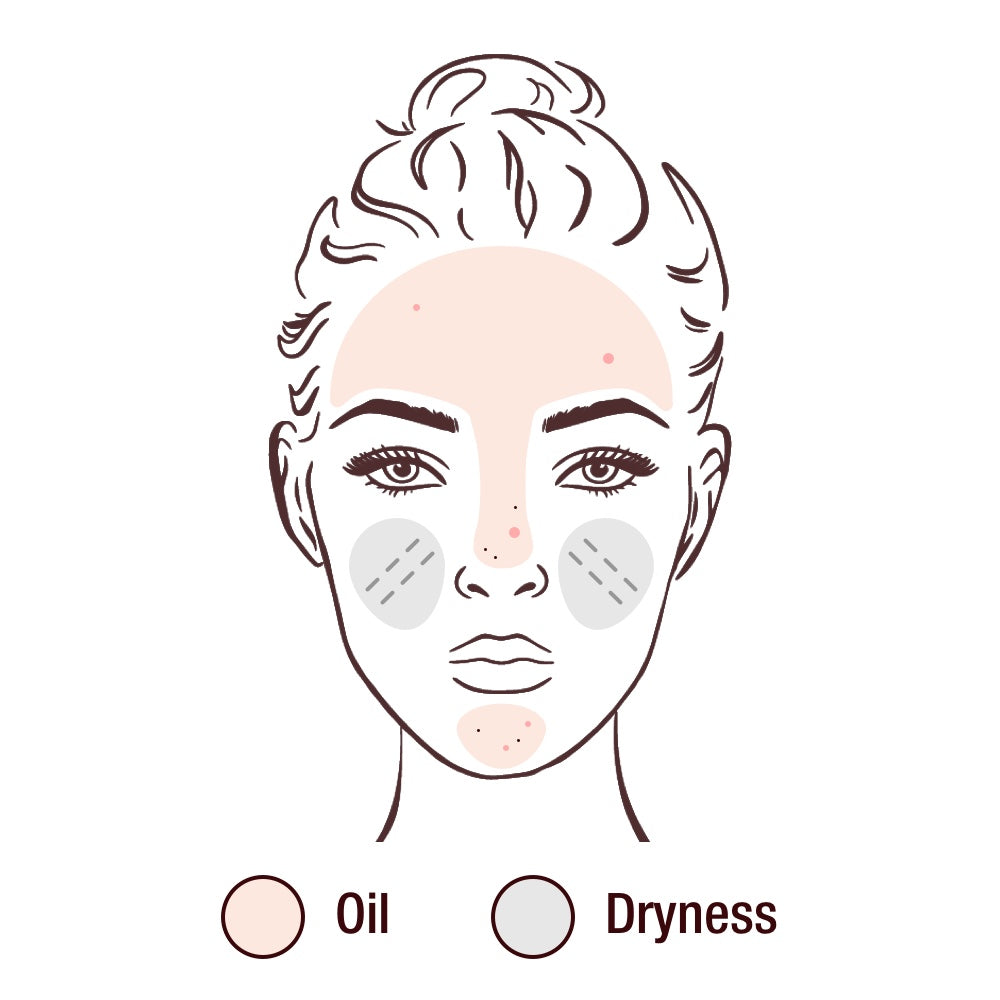
Do you know your skin type?
Share
When it comes to skincare, understanding your skin type is crucial for selecting the right products and creating an effective routine. Your skin type is determined by genetics and can change over time due to various factors such as age, hormones, and climate.
What are the Different Skin Types?
There are five main skin types: normal, dry, oily, combination, and sensitive. Normal skin is well-balanced, neither too oily nor too dry. Dry skin lacks moisture and can feel tight or flaky. Oily skin produces excess sebum, leading to a shiny complexion and potential breakouts. Combination skin is a mix of oily and dry areas, while sensitive skin is prone to irritation and redness.
How to Identify Your Skin Type
To determine your skin type, cleanse your face with a gentle cleanser and observe how it feels after 30 minutes. If your skin feels comfortable and balanced, you likely have normal skin. Dry skin will feel tight and may have visible flakes. Oily skin will feel greasy, especially in the T-zone (forehead, nose, and chin). Combination skin will have an oily T-zone and dry cheeks, while sensitive skin may react with redness or itching.
Why is Knowing Your Skin Type Important?
Understanding your skin type helps you choose the right skincare products that address your specific needs. For example, those with oily skin should look for oil-free, non-comedogenic products to prevent clogged pores. Dry skin types benefit from hydrating ingredients like hyaluronic acid, while sensitive skin requires gentle, fragrance-free formulas to avoid irritation.
How to Care for Your Skin Type
Once you've identified your skin type, tailor your skincare routine accordingly. Cleanse your skin twice a day with a gentle cleanser suitable for your skin type. Follow up with a toner to balance your skin's PH. Then, use a serum that target specific skin concerns such as acne, aging, or hyperpigmentation. After treating, seal with a moisturizer that hydrates without clogging pores or exacerbating oiliness. Don't forget to use sunscreen daily, regardless of your skin type, to protect against UV damage.
Regular exfoliation can help remove dead skin cells and improve skin texture, but be cautious not to over-exfoliate, especially if you have sensitive skin. Exfoliate at least 1 to 3 times a week, depending on your skin type and the product you're using.
By understanding your skin type and implementing a tailored skincare routine, you can achieve healthy, glowing skin that looks and feels its best. Remember, consistency is key when it comes to skincare, so be patient and give your skin time to adjust to any new products or treatments.
